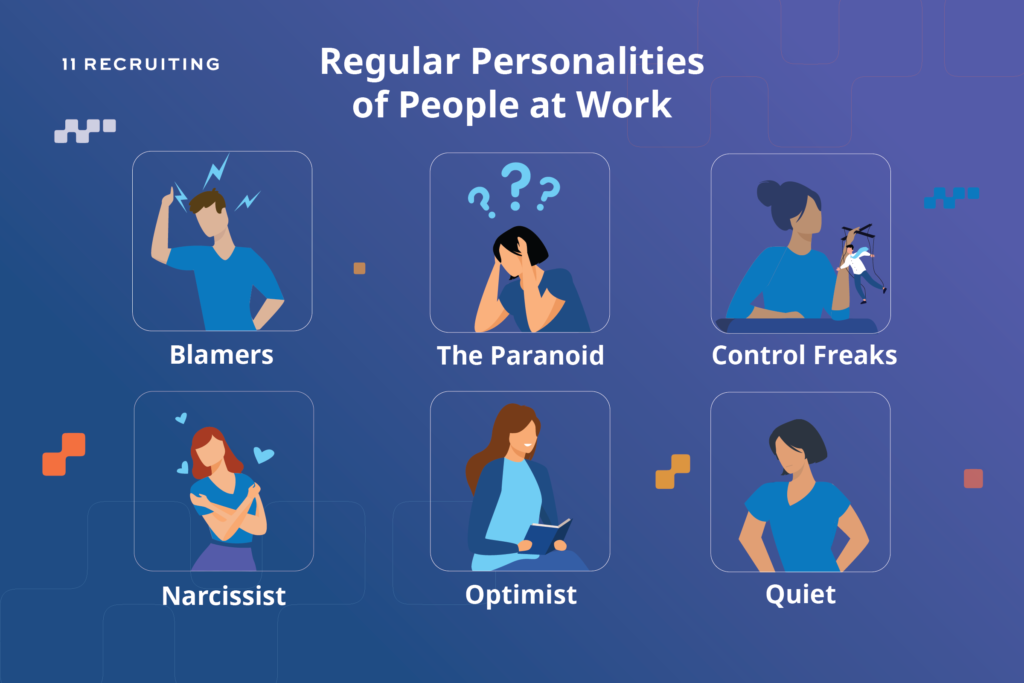
Joining an organization means that you’ll have to meet people at work with different backgrounds, gender, and races. And, sometimes, especially for newbies, it is often difficult to master how to interact with people at work at different levels.
But, interacting with people isn’t rocket science. Nonetheless, a major factor to workplace interaction is the work culture.
Importance of Work Culture in Interacting with People at Work
Work culture is the values, behavior, attitudes followed and imbibed by everyone (the CEO to the lower-level employees) in a company. This culture is what shapes your work enjoyment, your work relationships, and your work processes.
If the work culture is toxic, it will affect your work engagement, productivity, and performance. And this will have a ripple effect on your level of communication, teamwork, and morale. All these factors coupled together have a huge impact when it comes to interacting with people at work.
The People You are Likely Going to Interact With
As a newbie, especially in a tech firm, the people that you’ll interact with are your hiring manager, your department heads, and colleagues, and this depends on your position in the organization.
What are the regular personalities of people at work?

The Blamers: These ones always shift responsibility away from themselves to others whenever things go wrong in the office. They hardly acknowledge or apologize for their mistakes, bad decisions, or poor performance. They are good at gaslighting and will often stretch the truth to convince others that their version of events is accurate and factual even when it’s not.
The Control Freaks: These people often want others to do things their way. They feel the need to control the outcome of everything and everyone around them. Sometimes, they go over appropriate boundaries and attempt to supervise situations that aren’t relevant to their job duties.
The Quiet Ones: These people are the office wallflowers that prefer staying aloof in the office. You may notice them always at their desk or closing themselves off to others instead of interacting with other colleagues.
The Paranoid Ones: These people are often hard to deal with because they are always suspicious of other people. They lack trust in other people without any reason, and they interpret others’ behaviors and motives to be unfavorable towards them.
The Narcissist: These people work best and are more productive on their own. They burn a lot of bridges along the way, and they find it easy to push past other colleagues to achieve their goals. Plus, you can notice these people within the management levels of many companies and organizations.
The Optimist: These people are always willing to offer a helping hand, and they know exactly how to empathize. They are often great mentors for new employees unfamiliar with the work environment.
Frequently Asked Question
How can I deal with difficult people at work?
Start by examining yourself. Sometimes, you may be the one not analyzing the situation well. So, approach the difficult person, and ask for a private discussion to sort things out.
After discussing with the difficult person, and you still notice no changes in their behavior, you may now decide to invite a third party.
Why do I need to know how to interact with people at work?
Knowing how to interact with people can improve your job performance, productivity, and job satisfaction. You also get to build long-lasting relationships not only during work but outside of work.
What are the most important interpersonal skills I need when interacting with people at work?
Communication skills: It’s the ability to communicate and express yourself clearly and effectively to other people. It could be in verbal terms or writing, but most importantly, your no-verbal communication, which is your body language. The truth is this: your body language will often determine how your verbal communication (your words) is perceived, as it impacts your communication skills more than any other factor.
Empathy: It’s the ability to understand and put yourself in other people’s shoes. Empathy is a vital part of emotional intelligence and leadership effectiveness, especially in the workplace. In general, empathy leads to more effective workplace interaction and is positively related to job performance.
Conflict management: It’s the ability to solve issues between people, which could be between you and a colleague, a client, your boss, or between two other parties. More often than not, conflicts result from miscommunication, and they can cause negativity and reduce productivity. Hence, knowing how to meditate, find the root cause, and solve the problem is very important when you want to interact with people.
Leadership: It’s the ability to motivate and encourage others and help a team achieve success. The good thing is that you can learn to be an effective leader. But, to attain this effectiveness, you should have a strong sense of who you are as a person and be confident in your abilities.
Listening: It’s the ability to pay attention and understand other people’s views. Aside from paying attention, it also means the ability to reflect and respond to show you’ve fully absorbed the speaker’s words and are considerate enough to formulate the best answer. Failure to pay attention can have consequences, from failing to follow your manager’s instructions to the latter to not completing a customer’s request.
How to Interact with People in the Workplace
Be Respectful: Showing respect means that you regard your co-workers for their qualities or traits. It can also be the action of treating people with appreciation and dignity.
Build Trust: When your coworkers see you as a transparent person, you show them that they can trust you enough with vital tasks, and you’re willing to work with them toward solutions.
Listen to other people’s views: Pay attention by actively listening to the views and contributions of other people. This act fosters collaboration and builds relationships within your team.
Receive feedback without complaints: Don’t take feedback too personally, especially the negative ones. Objective feedback from people who care about you puts you on the right track, and this can help you grow. It can also help you adjust your course and direction in dealing with situations, people, and challenges at work.
Build important alliances: An ally is someone who could help you to achieve your objectives, and he is likely to support your views. They can assist with your work problem, provide advice and a different perspective on your assumptions and decisions. Allies are critical to your success at work, especially during recommendations for a higher position.
Encourage Difficult Conversation: Difficult conversation can never be avoidable in the workplace, and being able to handle and overcome difficult conversations is essential. This is where emotional intelligence and interpersonal skills come into play.
Don’t take credits alone: It’s almost impossible to complete a task without the help of other people at work. So, take the time to share your credit for accomplishment, contributions, and ideas with other co-workers that helped you succeed. It’s a staple secret tool to building effective work relationships.
Keep Your Commitments and Promises: Never forget the promises you made to a coworker, and always keep up with commitment. If you know you can’t help, don’t offer a hand.
And if you’ve made a promise or commitment you can’t keep, make sure to let the other party know what happened. You could also proffer a new deadline date and make sure to honor the new deadline.
Communication is key: Communication gives you closure with your co-workers. When you communicate well, they know what’s up, and you as well will have an idea of how to treat them better. Lack of communication reduces your job performance, productivity, and job satisfaction. So why not communicate, especially when you’re in your dream job?
With consistent practice of these nine tips concerning how to interact with people, you’ll be able to have productive workdays and help you build relationships with your people at work in the long run.

